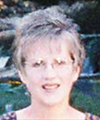Flexible and Healthy
I recently discovered The Resiliency Center, directed by Al Siebert, PhD. His website shows the results of his research, and he tells us that "life's best survivors value being flexible, resilient, and adaptable above any other quality."
It's not easy to be flexible. But Dr. Siebert tells us that is healthy to not to be rigid. He recommends that we cultivate paradoxical traits. To me, his advice translates into replacing the conjunction "but" with "and."
The power of and means uniting desirable traits normally viewed as separate. It means making connections no one else is making. For example, it requires us to see where suffering and joy intersect. (A life designed to maximize joy is much different from one that is meant to minimize pain.) If we think about it for a while, the two experiences often come together. Hopefully with joy as the second outcome.
Here are some other contradictions that are related in ways not immediately apparent:
- Poor and Wealthy
- Demanding and Caring
- Committed and Flexible
- Idealistic and Practical
- Passionate and Prudent
- Emotional and Rational
- Being and Doing
- Success and Fulfillment
- Individual and Inclusive
- Rigorous and Fun
- Transformed and Grounded
- Physical and Spiritual
- Chronically Ill and Well
Dr. Siebert reveals that "Paradoxical traits are, at the psychological level, like the opposing muscles in your body that contract and extend. Your ability to control how you move and react comes from being at the choice point between counter-balanced forces."
To that I would add that the process of looking for ways to be flexible and defining them in ways that are personally meaningful are a healthy step everyone should take.




